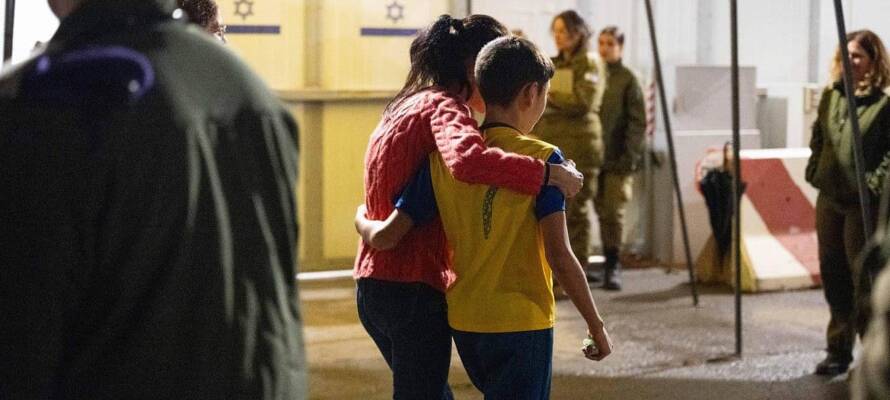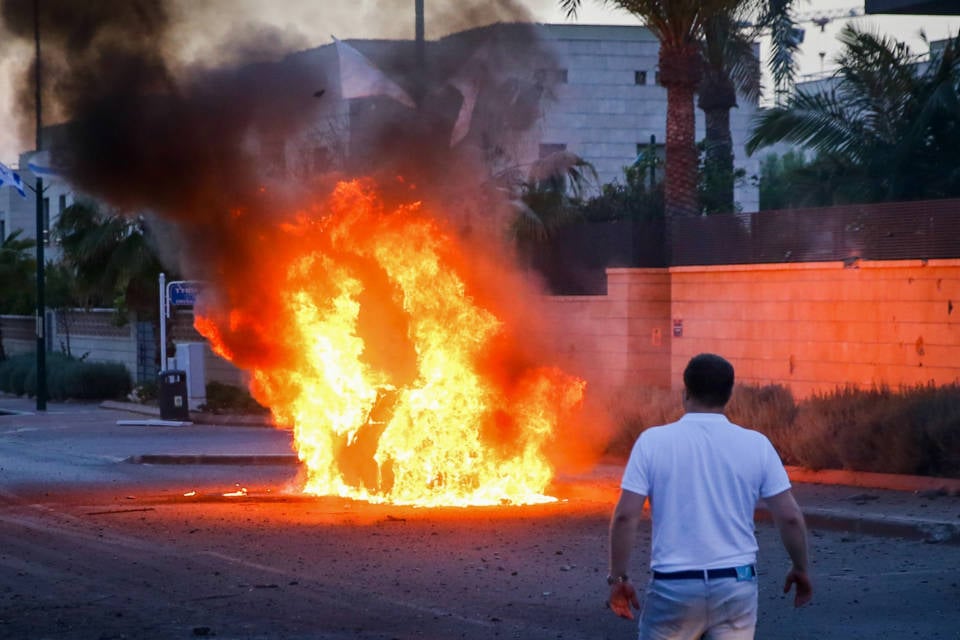Research at Bar-Ilan University reveals trauma alters time perception, suggesting a unique approach for symptom relief without direct exposure.
By TPS
“It seems that the issue of time perception changes as a result of exposure to trauma and, since Oct. 7, it is being experienced not only on a personal level but also on a national-collective level,” researchers wrote in a study led by Chava Treitel as part of her master’s thesis at Bar-Ilan University in Ramat Gan.
The study aims to establish a new theoretical understanding of the relationship between trauma, disruption of time perception, and clinical symptoms.
Treitel conducted the research under adviser Professor Einat Levy-Gigi.
The findings were published in the American Psychological Association’s peer-reviewed journal Psychological Trauma: Theory, Research, Practice and Policy.
The researchers showed how the perception of time may affect the development of post-traumatic symptoms through two parallel pathways.
First, due to the dual role of time, traumatic events cause disruption and slow down time perception. Their negative valence affects one’s experience (every day seems like a week), and this time dilation intensifies the negative feelings.
Second, the brain encodes traumatic events in an elemental manner and hence each element may evoke negative feelings and slow down time perception. Specifically, positive events are encoded in a holistic manner. For instance, if someone enjoyed a family dinner, he would remember the entire event—people, location, smell, time of the day—as a whole. Altogether, this event is associated with a positive feeling.
Traumatic Events Encoded
However, traumatic events are encoded in an elemental manner. Hence, when a person had to stay in a bomb shelter for many hours, each element of this experience (the structure of the shelter, the smells, the sounds) is independently associated with negative trauma-related feelings. Accordingly, each element may evoke the event even in the absence of the other elements.
This may explain why children who had to stay in a bomb shelter for many hours during Hamas’s Oct. 7 attack on the northwestern Negev may develop a fear of being closed in small rooms (even if they are aware of its safety) and why soldiers who return from the battlefield may feel anxious when they hear fireworks (even if they are safe in their hometown).
A small room or loud sounds are both neutral stimuli. However, since they were also part of the traumatic experience, they are associated with the traumatic reaction and may independently evoke it, even in safe situations.
Taken together, a chronic slowdown in the perception of time may arise, something that serves as fertile ground for the development of post-traumatic symptoms that last over time.
After exposure to trauma, these two mechanisms create a cruel trap whereby both traumatic and neutral events continue to disrupt one’s time perception. In this situation, even without further exposure to traumatic events, reality is painted in gloomy colors. Every experience, no matter how neutral, takes on a traumatic tone and reproduces the negative feelings from the initial event. This encourages the formation of additional post-traumatic symptoms that persist over time.
A targeted clinical intervention that enables the development of awareness of time and its disruptions may be an innovative intervention pathway that allows the relief of post-traumatic symptoms without the need for repeated exposure to emotional content linked to the traumatic experience, the researchers said.
In response to their findings, the researchers suggest using a clinical intervention based on metacognitive awareness, which was found to have a positive effect on time perception, to reduce post-traumatic symptoms. Metacognitive awareness includes relearning how to evaluate time, which allows for the reduction of disruptions in the perception of time that characterize people during and after exposure to trauma.
Post-Traumatic Symptoms
The study presents, for the first time, findings indicating that this method has the potential to alleviate post-traumatic symptoms such as impulsivity or aggression, without the need for a renewed and direct processing of the traumatic content.
“Currently, it can be argued that the trauma of October 7 created a slowdown in the perception of time, such that every day feels like an eternity. Even now, three months after that terrible day, the perception of time for many of us remains distorted,” said Levy-Gigi.
“On the one hand, it seems that we experienced it only yesterday, and on the other, there’s a feeling that the war was always here, and it is difficult to remember and connect to events that occurred before the war. It’s also difficult to grasp that even though it is an ongoing situation, it is also ultimately limited in time,” she added.
Paying conscious attention to the passage of time may help. For example, continuous counting of the days the hostages have been held captive in Gaza helps us place the traumatic event and more accurately measure our distance from it. A clock that rings every hour helps people accurately perceive time, the researchers said.
Looking at the period from a broader historical perspective may help, the researchers added. By comparing the war to other wars throughout history, one will realize that whether the wars were short or long, they were all points on a timeline.
Israel at War with Hamas. Support Israel Today!
The people of Israel need your help at this most critical time. Please make a donation to help protect and defend Israelis against unprecedented Hamas terror.
Rockets are falling. Sirens blare, with seconds to run for cover. IDF soldiers risk their lives battling terrorists inside Gaza. Thousands forced to abandon their homes in southern Israel.
To fight terror and save lives, UWI provides bomb shelters, anti-terror vehicles, protective gear, security equipment, medical assistance, relief to victims and much more. Help Israel fight and win this war against Hamas. The time to act is now!




